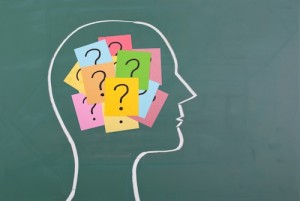
In our discussions about living our life with a positive attitude, we have looked at ways to increase our positivity. Of course we know that the thoughts and feelings we have and the way that we speak to ourselves affects how we feel during the day and our behaviors. Just as important though is our willingness to be a good finder and look for people, events and things that we have been provided to be thankful for.
Do we have an ATTITUDE OF GRATITUDE?
In a study in 2003 by Emmons, R. A. & McCullough, M. E. (2003) Counting blessings versus burdens: An experimental investigation of gratitude and subjective well being in daily life, Journal of Personality and Social Psychology 84: 377-89. they showed that those that wrote down 5 things every night that they were grateful for had the following results:
- getting more hours of sleep
- less time spent falling asleep
- waking feeling more refreshed
- fewer symptoms of physical illness
Other studies have shown a 23% decrease in cortisol – often referred to as the stress hormone – and we all understand the havoc stress plays on our body and attitude. Making it a practice to recognize, journal and express our gratitude will be beneficial to our health and our day.

 If however I create a positive attitude by thinking along the lines of knowing that things will get better, or I can apologize or this argument is not going to last forever – then we can start the process of creating a positive attitude. I may have to force myself to think that way, it may not come natural. But this is a part of us ‘making the choice’ of the attitude we are going to have.
If however I create a positive attitude by thinking along the lines of knowing that things will get better, or I can apologize or this argument is not going to last forever – then we can start the process of creating a positive attitude. I may have to force myself to think that way, it may not come natural. But this is a part of us ‘making the choice’ of the attitude we are going to have. How is it that in a classroom or an office there is always one person that can find the negative things that could happen that day or on this project or if we go in that direction? How often does that attitude of negativity dampen the spirits of others around them? Is it not refreshing when one or more others step up and insist on looking at our work or our lives in a more positive manner?
How is it that in a classroom or an office there is always one person that can find the negative things that could happen that day or on this project or if we go in that direction? How often does that attitude of negativity dampen the spirits of others around them? Is it not refreshing when one or more others step up and insist on looking at our work or our lives in a more positive manner? Our brain works in the same manner. It will look for the answers to the questions we ask it. If we tell ourselves, “We are going to have a terrible day!”, our brain looks for all the reasons we will have a terrible day and will give us a long list that we are there to approve. However if we ask, “What is great about today?”, our brain will search for answers to that question. Those answers will become your reality. Your focus on positive thoughts become your feelings and emotions, which in turn become your reality.
Our brain works in the same manner. It will look for the answers to the questions we ask it. If we tell ourselves, “We are going to have a terrible day!”, our brain looks for all the reasons we will have a terrible day and will give us a long list that we are there to approve. However if we ask, “What is great about today?”, our brain will search for answers to that question. Those answers will become your reality. Your focus on positive thoughts become your feelings and emotions, which in turn become your reality. Each month we will discuss a life skill with all of our students. This month the word is Positive Attitude. This word will be defined in the following ways for our students.
Each month we will discuss a life skill with all of our students. This month the word is Positive Attitude. This word will be defined in the following ways for our students.
